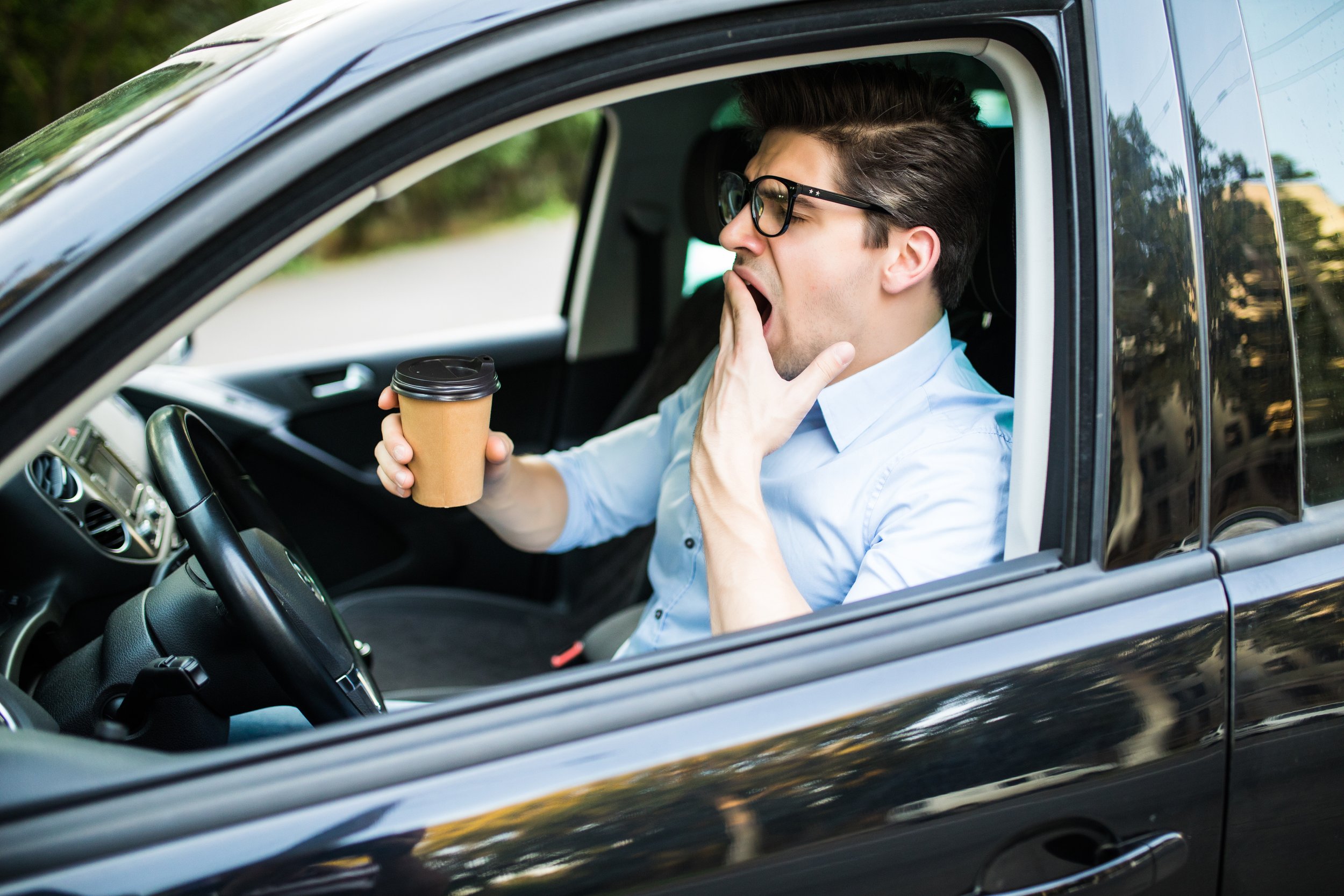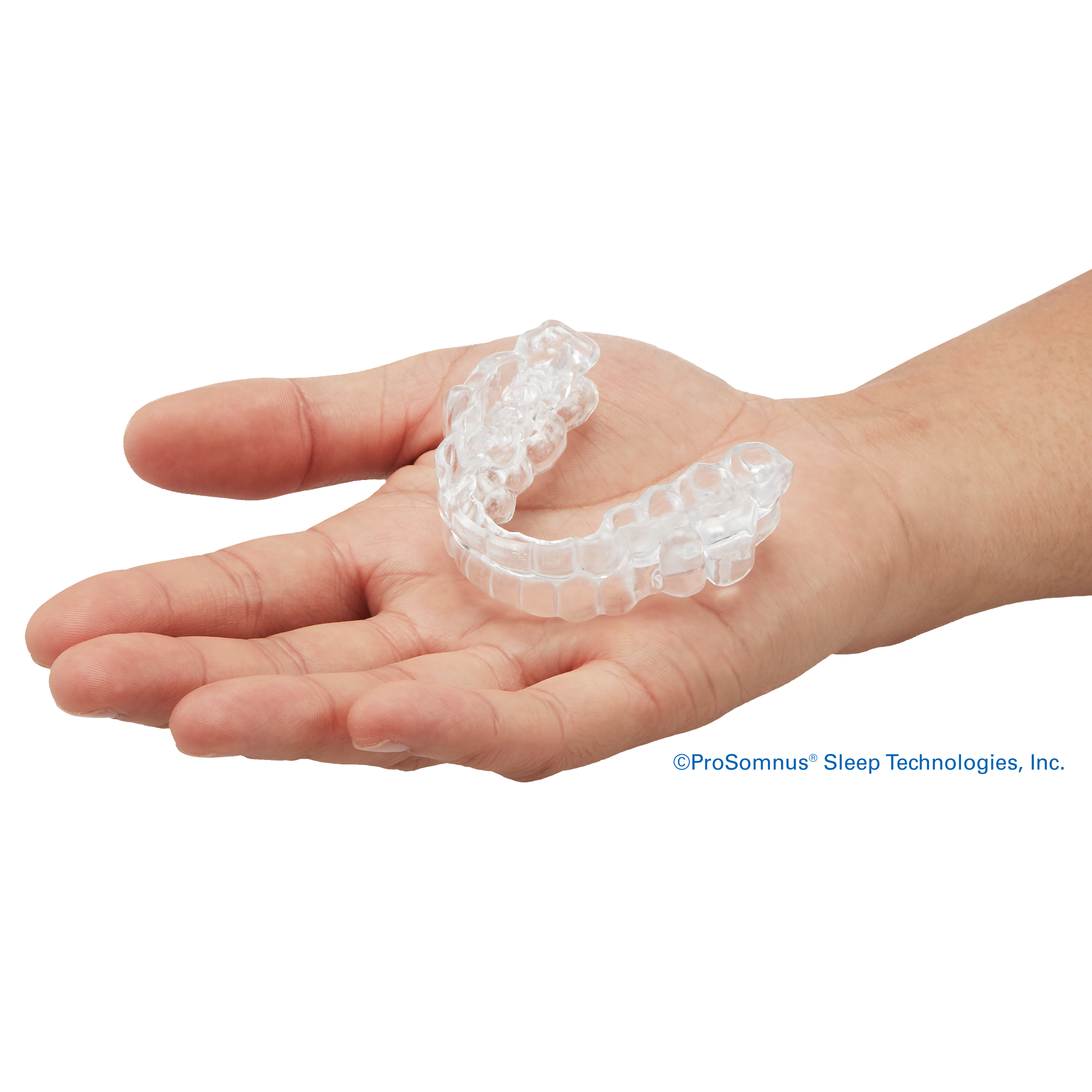Oral Device Therapy for Sleep Apnea in Marquette, MI
We Bill Medical Insurance and Accept Your VA Benefit!
(plus more)
No medical insurance? No problem!
Levätä Sleep has partnered with Cherry to offer flexible financial options.
If you are suffering from obstructive sleep apnea (OSA), consider oral device therapy as an effective treatment option that can help you regain your sleep. Unlike other treatments like continuous positive airway pressure (CPAP) and surgery, oral device therapy offers unique benefits. While these alternatives are often effective, it’s essential to understand the advantages of oral device therapy.
At Levätä sleep, we don’t just provide treatments, we partner with you on a journey to find the best solution for your sleep apnea. We specialize in oral devices, or dental appliance therapy. Our sleep specialists offer convenient at-home testing, and develop a customized oral therapy device in Marquette, MI to tackle your sleep apnea.
Understanding Oral Device Therapy
Oral appliance therapy is a well-established and effective treatment option for sleep apnea. This non-invasive approach utilizes custom-fitted oral devices to help alleviate symptoms and improve sleep quality. With their comfortable design and ease of use, oral appliances offer a convenient alternative to CPAP therapy for many individuals.
These devices are made by dentists that are sleep specialists.
Examples of these devices include the Herbst device, and the Evo. The right device depends on your anatomical needs, and other factors such as what your type of insurance or Medicare covers.
Here are some types of oral appliances to know about:
Mandibular Advancement Device (MAD)
One type of oral appliance commonly used is the Mandibular Advancement Device (MAD). These devices are designed to reposition the lower jaw slightly forward, thereby opening the airway and reducing the risk of obstruction during sleep. By promoting optimal airflow, MADs help to minimize snoring, improve oxygen levels, and prevent apnea episodes.
Combination Devices
While these categories represent common oral devices to treat sleep apnea, sometimes, a combination device is required. These hybrid devices combine different features of each to create a customer solution designed to fit you.
Inspire Device
The Inspire device is a surgical treatment for obstructive sleep apnea. It involves the implantation of a small device that delivers mild stimulation to the airway muscles, helping to keep the airway open during sleep. This innovative therapy offers an alternative to CPAP for individuals who are unable to tolerate or benefit from it. The implantation of the device is a surgical procedure performed by a qualified surgeon.
The effectiveness of oral devices and appliances in treating sleep apnea is well-documented, with studies showing significant improvements in sleep-related outcomes and quality of life. Many of these devices are even approved by the FDA to treat sleep apnea. These devices are customized to fit each individual’s oral anatomy and are adjustable to ensure optimal comfort and effectiveness.
It’s important to note that oral appliance therapy requires a proper diagnosis and fitting by a qualified dentist or sleep specialist. A comprehensive evaluation will be conducted to determine the severity of sleep apnea, assess the structure of the airway, and customize the oral device to provide the best outcome.
Who Oral Devices are For
Oral devices offer a viable treatment option for individuals who have mild or moderate sleep apnea or who cannot tolerate CPAP therapy or are seeking an alternative to continuous positive airway pressure machines. These custom-fitted devices are designed to provide relief from sleep apnea symptoms while offering a range of benefits for specific individuals. Here are some situations where oral devices may be a suitable choice:
CPAP Intolerance: Oral devices are an excellent option for individuals who have difficulty tolerating CPAP therapy, such as discomfort from the mask, claustrophobia, or difficulty adjusting to the air pressure. They offer a comfortable and effective alternative for managing sleep apnea.
Co-existing Conditions: Oral devices can also address underlying conditions commonly associated with sleep apnea, such as bruxism (teeth grinding/clenching), temporomandibular joint disorder (TMJ), and temporomandibular dysfunction (TMD). By alleviating these conditions simultaneously, oral devices provide comprehensive treatment and improve overall oral health.
Moderate Obstructive Sleep Apnea: For many individuals with moderate obstructive sleep apnea, oral devices can be highly effective in managing their condition. However, it’s important to note that more severe cases of sleep apnea may require a combination of treatments or even surgical intervention.
Insurance Coverage: Oral device therapy is often covered by insurance plans, making it an accessible treatment option for those seeking financial assistance. It’s advisable to check with your insurance provider regarding coverage specifics and any required documentation.
Customized Solutions: Oral devices are individually customized to fit the unique oral anatomy of each patient. This personalized approach ensures optimal comfort, effectiveness, and a better treatment experience compared to generic solutions.
CPAP Recalls or Inaccessibility: In cases where CPAP machines are subject to recalls or become temporarily inaccessible, oral devices offer a convenient and portable solution. They allow individuals to continue their sleep apnea treatment without interruption, providing flexibility and peace of mind.
Avoidance of surgery. In severe cases, surgery may be required. However, for most, this can be avoidable. If you are hoping to avoid surgery as a treatment option, oral devices might be for you.
Considering these factors, oral devices can be a suitable and effective treatment option for individuals seeking relief from sleep apnea symptoms. It is important to consult with a qualified dentist or sleep specialist who can assess your specific condition, evaluate the severity of sleep apnea, and recommend the most appropriate treatment approach tailored to your needs.
Is oral device therapy covered by medical or dental insurance?
Oral device therapy is billed under medical insurance. Coverage for oral device therapy can vary depending on your insurance plan and provider. It is important to contact your insurance provider directly to understand the specifics of your coverage. They can provide information regarding any required documentation, coverage limitations, and pre-authorization requirements. Levätä Sleep may also be able to help you figure out how to take the next steps. We have experience working with insurance companies and are here to guide you in finding out how to get oral devices therapy covered.
Is it easy to get an oral device for sleep apnea treatment?
Obtaining an oral device for sleep apnea treatment, including the at-home testing process, is generally a straightforward and convenient option. After scheduling a consultation with a sleep specialist or dentist specializing in sleep apnea, you will undergo an examination and assessment to determine the suitability of an oral device for your specific needs. If recommended, a sleep study will be ordered from your provider, where you will be provided with a portable device to monitor your sleep patterns and collect data on breathing, oxygen levels, and other relevant parameters. Once the test is completed and the results are evaluated, the dentist will customize the oral device to fit your mouth and make any necessary adjustments for optimal comfort and effectiveness. Regular follow-up appointments may be scheduled to monitor your progress. By working with a Levätä Sleep, you can easily navigate the process and obtain an oral device that is tailored to your requirements, supported by the valuable insights gained from the at-home sleep testing.
How long do oral devices last?
The lifespan of oral devices used for sleep apnea treatment can vary, typically ranging from 2 to 5 years. However, it’s important to note that individual wear and tear, changes in oral health, and advancements in technology may influence the longevity of the device. At Levätä Sleep, our experienced team will assess the condition of your oral device during regular follow-up appointments to ensure its effectiveness and durability. We will provide guidance on proper care and maintenance, including cleaning instructions, to help prolong its lifespan. If you experience any discomfort or notice signs of wear, our experts will be available to address your concerns and determine if repair or replacement is needed.
How many sleep tests do I need to take to be prescribed an oral device?
In many cases, a single sleep test is typically sufficient to be prescribed an oral device for sleep apnea treatment. At Levätä Sleep, we understand the importance of an accurate diagnosis and effective treatment. Our experienced team will help you get tested for sleep apnea and ensure your results are interpreted by a sleep physician and, if appropriate, recommend an oral device tailored to your needs. We aim to streamline the diagnostic process, ensuring you receive the necessary care in a timely manner.
Are oral devices effective at treating sleep apnea?
Yes, oral devices are FDA approved and have been proven to be effective in treating sleep apnea. These custom-fitted devices are designed to reposition the jaw, helping to keep the airway open during sleep and reduce breathing interruptions. By improving airflow and reducing airway obstruction, oral devices can effectively alleviate the symptoms of sleep apnea, such as loud snoring and daytime sleepiness. They are a non-invasive and comfortable alternative to CPAP therapy, offering convenience and ease of use. Consult with a sleep specialist or dentist experienced in sleep apnea treatment, such as Levätä Sleep, to determine if an oral device is suitable for you.
What You Should Know about Oral Devices
Here are some facts about oral devices provided by dentists such as Levätä Sleep that you should know:
Are FDA approved demonstrating their efficacy and safety
Are built using durable products meaning they can last up to 5 years before needing replacement
Can alleviate sleep apnea symptoms such as snoring, poor moods, sleepiness, and more
Can help with underlying conditions such as bruxism (excessive teeth grinding or jaw clenching), TMD (temporomandibular disorders), and TMJ (arthritis of the temporal mandibular joint)
Don’t require any power or hoses
Are of higher quality and are custom designed to meet your anatomical needs compared to a device you could purchase online or at a pharmacy
Often treat the root cause of sleep apnea
How to Begin Oral Device Therapy
If you are interested in oral device therapy, here are the next steps that you should take:
Schedule a consultation with a dentist specializing in oral devices such as Levätä Sleep.
These specialists will help determine if an oral device is right for you.
If you are a candidate for oral device therapy, the dentist may recommend an at-home sleep test.
After evaluating your at-home sleep test, your medical background, and desired goals, our dentists may prescribe an oral appliance to treat your sleep apnea.
Finally, you will receive your custom-made oral device.
Levätä Sleep will be here to support you every step of the way, including follow-up maintenance and evaluation.
Benefits of Oral Device Therapy
A comprehensive approach to diagnosing sleep apnea is important to ensure accurate assessment and personalized treatment plans. By considering multiple aspects, the test can gain a comprehensive understanding of your sleep health and accurately diagnose sleep apnea.
Contact Levätä Sleep Michigan for Oral Device Therapy
Oral devices are an effective option to treat sleep apnea. Contact us today to schedule a consultation. Our team of experts will work with you to find the right treatment for you; whether it be an oral device or other types of therapies. Reach out today to get started.
















